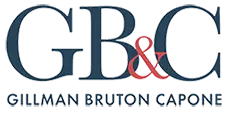Question: Can a Debt that Arises from a Divorce Proceeding ever be Discharged in a Bankruptcy Case?
A. Yes. Although, as discussed further, debts which are in the nature of “alimony, maintenance, and support” (“Domestic Support Obligations”) cannot be discharged in any bankruptcy case, other debts arise out of a divorce from a bankruptcy case. Specifically, debts which are owed “to a spouse, former spouse, or child of the debtor and not of the kind described in paragraph (5) that is incurred by the debtor in the course of a divorce or separation or in connection with a separation agreement, divorce decree or other order of a court of record, or a determination made in accordance with State or territorial law by a governmental unit”. 11 USCS § 523(a)(15). Although these debts are not dischargeable in a Chapter 7 Bankruptcy Case, they may be dischargeable in a Chapter 13 Bankruptcy case.
Chapter 13 Bankruptcy cases involve a reorganization – a debt repayment plan – in which the Debtor is required to commit his or her income to creditors for a period of between 36 and 60 months. In such a case, a debt which is owed “to a spouse, former spouse, or child of the debtor and not” in the nature of “alimony, maintenance, and support” (“Domestic Support Obligation”), may be discharged. Bankruptcy Code Section 1328(a)(2) clarifies that certain debts, which would otherwise not be discharged in a Chapter 7 bankruptcy case, can be discharged in a Chapter 13. This is often referred to as the “Super-Discharge” available in Chapter 13 cases.
Therefore, when considering the effect of a bankruptcy filing (by either spouse), it is also important to review options regarding the Chapters of bankruptcy available.
EXTREME CAUTION: The Legal Questions posed by whether a “debt” owed is in the nature of “alimony, maintenance, and support” is fact sensitive and therefore requires a full analysis of all the facts and circumstance of the litigants, including but not limited to their income, assets, liabilities and obligations. The determination of whether any person should file a bankruptcy, and what chapter of bankruptcy is appropriate, should also be reviewed with experienced legal counsel.


